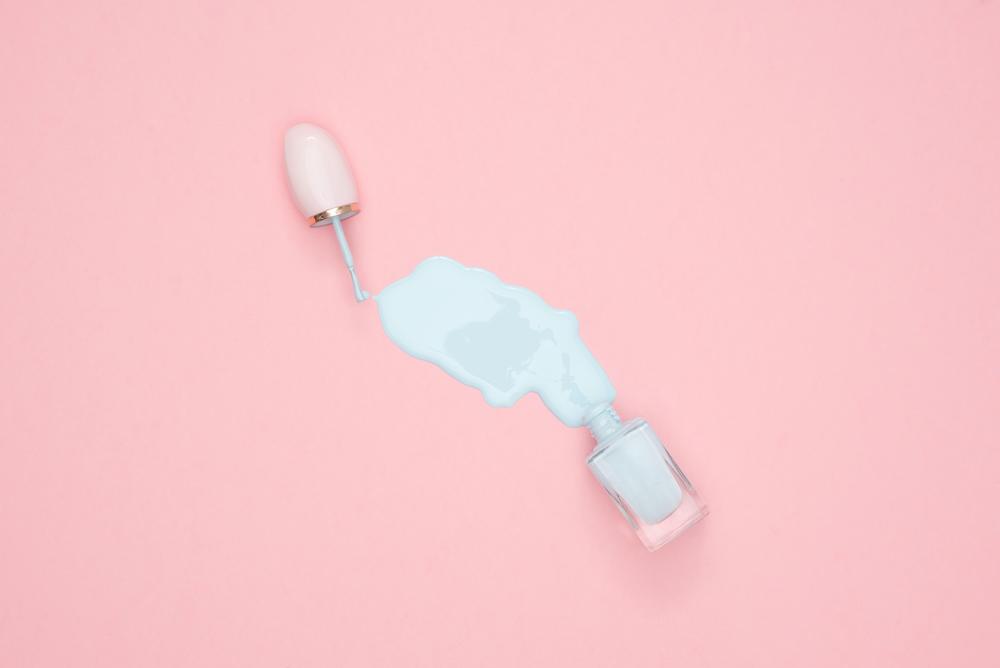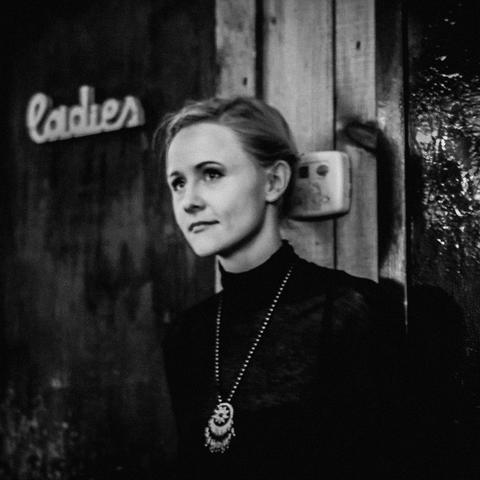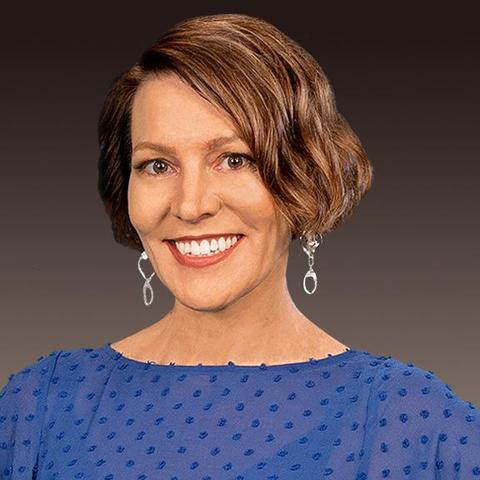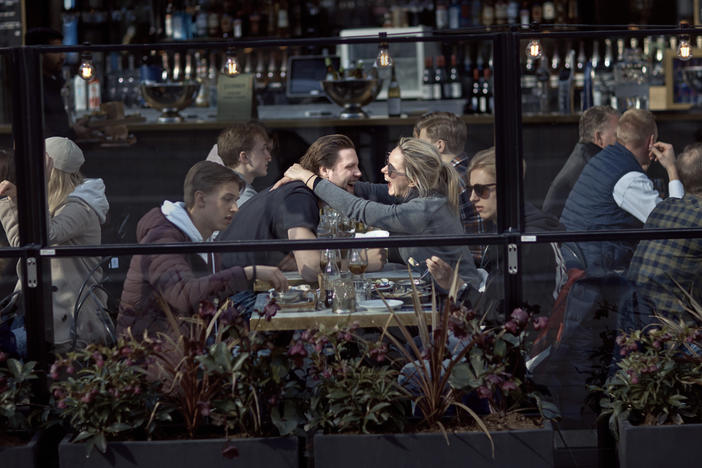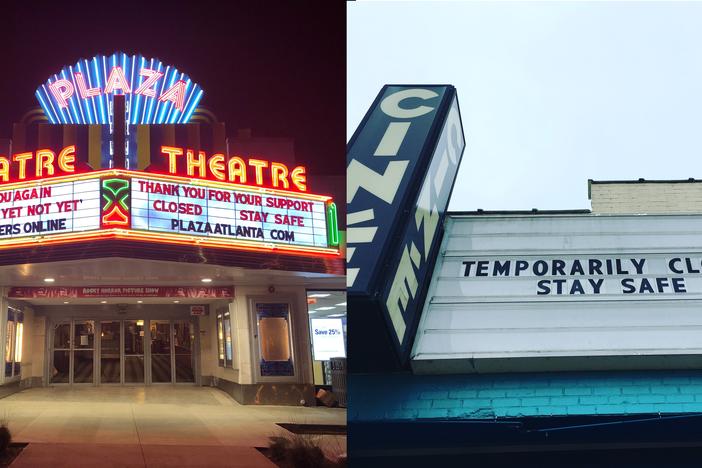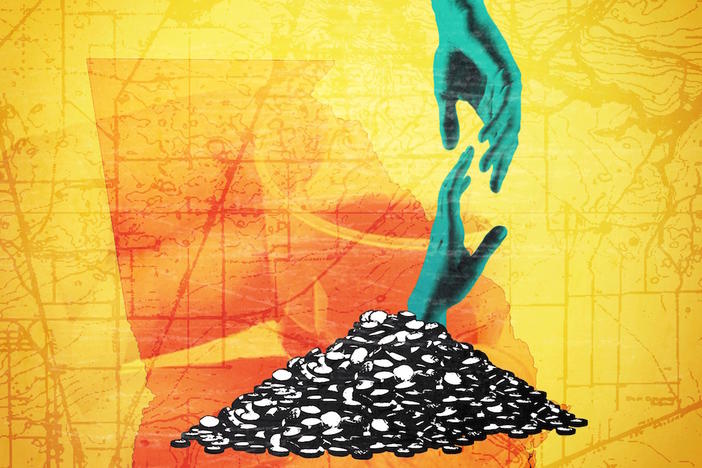Section Branding
Header Content
Beauty Behind Closed Doors: How Self-Care And Grooming Regimes Have Changed In Quarantine
Primary Content
Self-isolation and quarantine have recalibrated our habits, routines, and what we present to the world. For many lucky enough to still have a job, getting dressed and made up is a vestige of normalcy in a world that feels upended. But for others, gray roots, shaggy beards and chipped nails are the last thing to worry about.
What has this unprecedented period behind closed doors revealed about the motivations behind our self-care? And what will happen to the beauty market when self-isolation is over — especially given that Gov. Brian Kemp recently gave the greenlight for barbershops and hair and nail salons to re-open?
"On Second Thought" host Virginia Prescott speaks with Melanie Yvette and Amanda Mull.
On Second Thought explored those questions and more with Amanda Mull, staff writer with The Atlantic who focuses on appearance and identity, and Melanie Yvette, beauty blogger and social media strategist behind the Beautifully Brown blog.
Mull wrote an article entitled "Isolation Is Changing How You Look" for The Atlantic at the end of March. She noted that she was inspired to write about how coronavirus self-quarantines were shifting beauty routines after she saw people posting to social media about their concerns over deteriorating hair-dos and sold-out products.
“You know, you can only talk about disaster in so much detail and in so much time before people’s minds start to wander to other parts of their life,” Mull shared. “Even if they didn’t think [appearance] was super, super important, it was still something that they noticed when they got up and brushed their teeth in the morning.”
Yvette agreed, noting that she’s seen a variation in how people have responded to self-care while in isolation. While some have expanded on beauty and grooming routines to try and maintain a sense of normalcy, she says others have pulled away as they feel the weight of the pandemic.
“People are feeling a wave of emotions when it comes to self-care and beauty and grooming routines,” Yvette shared.
Yvette, whose blog explores self-care, beauty and fashion trends particularly for women of color, also noted that women with natural hair may be experiencing additional stress as they cope with caring for their hair on their own.
“Whether your hair is natural, whether your hair is relaxed, it doesn’t matter,” she said. “Having to tend to your own hair, when you’re used to going to a salon or having someone do that for you, can be stressful.”
Mull said that these responses are indicative of a broader kind of psychological reaction to the pandemic.
“When people are confronted with problems that they can’t control, or that they can’t solve, they often look around and try to solve things that they can deal with,” Mull explained.
Yvette believes that when lockdown ends and people begin to socialize more in-person, the beauty industry will have to reckon with the months people spent innovating their own solutions to a lack of access to barbers, stylists and aestheticians.
“I do think spending will cut back, because people will just be in a situation where they’ve had to learn how to do it for themselves,” Yvette said.
However, neither Yvette nor Mull believe that the beauty industry will disappear entirely. Mull said that after speaking to disaster anthropologists and historians, she learned that one of the first things people typically do after experiencing a collective social trauma is strive for a return to normalcy — and that often means diving right back into wax appointments or scheduling a trip to the barber shop.
“My most optimistic self hopes that the biggest change that comes from this in the beauty industry is that hair stylists, nail techs, pedicurists and aestheticians get better wages and benefits — that the structure of the industry changes to better support the people that work in it,” Mull reflected. “I hope we can stabilize the careers of the people who have had to stop working for this.”
INTERVIEW HIGHLIGHTS
On whether there’s relief in forgoing usual beauty routines while under lockdown
Mull: I think that for some people, yes. It sort of depends on your relationship to your appearance, probably. But I think people like the opportunity to be removed from the normal standards of everyday living, sometimes. And it's harder to be removed from some of those than others. But when it comes to appearance, this gives people an opportunity to try new styles, to see what their face looks like under their beard, [or] see if maybe they can cut their own bangs after all. So, I think it does provide a little bit of relief from the day-to-day monotony that can come along with just maintaining a human body. But, it sort of depends on how people think about their appearances, and how people integrate their appearances with their identities, as to how much relief that is.
On the false dichotomy between beautifying for yourself or for others
Mull: Well, I think that beauty routines often get put into this false binary of for yourself, or for others. In reality, I think that those two things cannot be separated out, because how we feel about ourselves is often a reflection of, to a certain extent, how others feel about us — how people we respect and like, and want the admiration of, feel about us.
So, I think that those beauty routines tend to fulfill both personal purposes and social purposes. And I don't think that one is necessarily more important or more righteous than the other.
So this will probably, I think, just make that clear to people, and hopefully make it more clear to them what they value about what they've been doing for themselves and for their bodies, and what truly makes them happy, or makes them feel the most like themselves, versus doing things that they feel like they're required to do.
On how isolation during coronavirus could help men and women understand their beauty commonalities
Yvette: I feel like this quarantine time may be somewhat of an equalizer for how, in my opinion, social media and society in general attacks women for loving makeup and loving beauty. And we're starting to see how men as well, though many might hide what they do to maintain themselves, they are also struggling. […] And in comparison to the way women get attacked for wanting to look nice, or get their nails done, or look pretty, [people say] “Oh, it’s wasteful, you spend money on this blah, blah, blah.” We're seeing that men do the same. But I think that this might bring a little bit of an equalizer in terms of, you can't really keep attacking us for wanting to feel good and look good as women. And I do think this is an interesting time to see how men are reacting to having to look at themselves and say, “Oh, yeah, I actually need my barber.”
On how the beauty industry will change after coronavirus
Yvette: I think that we might have more of just like a slow-to-grow process in terms of getting back to those beauty service touchpoints. I don't think it's going to be eradicated completely; I just think that’s it’s just going to be different. I do think the jobs will be slower, unfortunately. I will say, though, that I feel like a lot of people will — women in particular — run back, when we can, to those beauty touchpoints. Because that's a part of the process, that’s a part of the journey – walking into a Sephora and the fragrance hits you, and you’re like, “Oh, my gosh.” You know, that people miss that. So, I do think that jobs might be fewer, but I don't think it's gonna be gone forever, because people want that.
Get in touch with us.
Twitter: @OSTTalk
Facebook: OnSecondThought
Email: OnSecondThought@gpb.org
Phone: 404-500-9457
Secondary Content
Bottom Content

